Table of Contents
In the last few years, the strategic landscape of the Indo-Pacific region has been in a constant state of flux. For decades, the United States has been the primary security and economic partner for most countries in this vital region, a region that serves as the economic engine for much of the world. However, recent developments suggest a potential shift in allegiances—one that could have lasting implications for global geopolitics.
The unpredictable nature of the Trump administration’s foreign policies, especially with the trade war with China, has forced U.S. allies to reconsider their long-term strategies. As a result, many Indo-Pacific nations, traditionally aligned with Washington, are finding themselves increasingly tempted to pivot toward Beijing. While this shift is still in its infancy, it is a geopolitical moment that could shape the future of the region for decades to come.
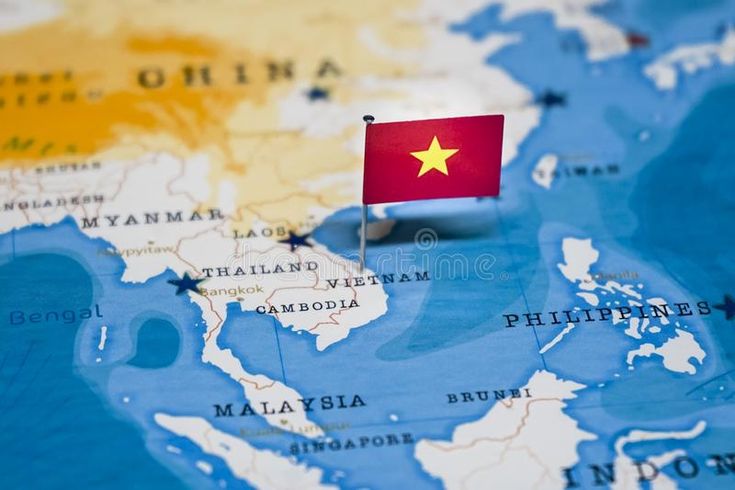
The Hedging Strategy: Vietnam’s Deliberate Message to the U.S.
Vietnam, a key player in the Indo-Pacific, has long walked a fine line between maintaining good relations with both the U.S. and China. Recently, the Southeast Asian nation has embraced a “comprehensive strategic partnership” with both the United States and China, a diplomatic balancing act that reflects its desire to benefit from both sides without fully committing to either.
In April 2025, Vietnam welcomed Chinese President Xi Jinping in Hanoi, where the two countries pledged to elevate their partnership even further. This was a calculated message to Washington: despite Vietnam’s strong historical ties with the U.S., it will not be bullied by Trump’s 46% tariff rate and has other strategic options.
During his visit, Xi Jinping took the opportunity to criticize Washington’s approach, urging Vietnam to resist “unilateral bullying” and warning that “there are no winners in trade wars.” This was an interesting stance given China’s own record of protectionism, but it served as a pointed jab at U.S. policy. While President Trump did not directly address these comments, he did suggest that China was attempting to “screw” the United States.
Vietnam’s stance signals a broader shift in the region, one where countries are considering whether they should hedge their bets with China, especially as the U.S. continues to assert tariffs and act unpredictably.
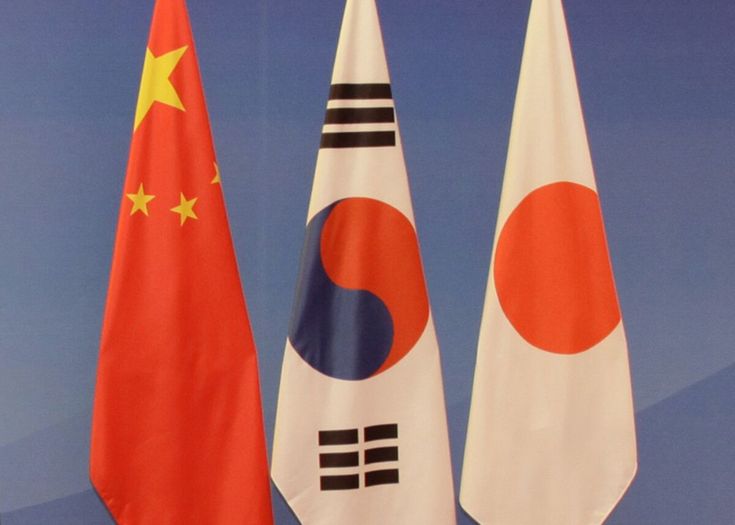
A Changing Dynamic: Japan and South Korea’s Shift?
Historically, Japan and South Korea have been stalwart U.S. allies, particularly in the context of countering China and North Korea’s threats. However, recent diplomatic and trade talks between these nations and China show a potential softening of their positions.
In March 2025, envoys from Japan and South Korea met with their Chinese counterparts to discuss economic cooperation and trade relations, marking the first such engagement in five years. Chinese state media even suggested that the three countries had agreed to cooperate to blunt the effects of U.S. tariffs, though Japan and South Korea have since disputed these claims.
Despite some rhetoric from Beijing, the reality is that both Japan and South Korea are deeply concerned about China’s military expansion in the South China Sea and its increasingly assertive behavior in global affairs. Nevertheless, it appears that trade concerns and the tariff wars have pushed these countries to seek out alternative options, including engaging with Beijing more than they have in recent years.
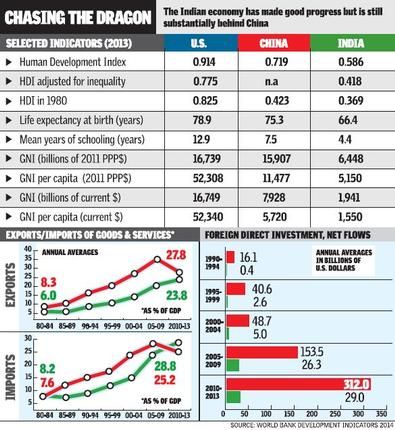
India’s Strategic Calculations with China
India has also exhibited signs of recalibrating its approach to China. Following a significant military standoff along the Himalayan border, India and China came to an agreement in October 2024 to return to the status quo. Since then, Indian Prime Minister Narendra Modi has praised the “strong” ties between the two nations, even as India continues its historic partnership with the U.S.
The growing unpredictability of the U.S.-India relationship, coupled with Trump’s isolationist policies, might have led Modi to hedge his bets with China, as he seeks to ensure that India is not left out in case the U.S.-China relationship improves or if U.S. policies become more erratic.
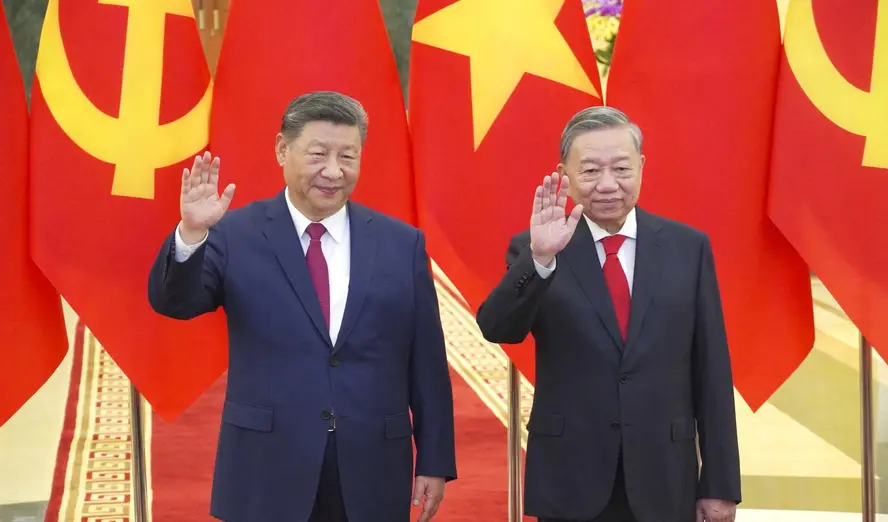
The Pacific Islands: A Shift Toward China?
The Pacific Islands have also shown signs of moving away from the United States due to the Trump administration’s foreign aid cuts and rejection of climate change policies. This shift has convinced Pacific island nations that China might be a more reliable partner for their strategic needs.
Pacific Islands Forum Secretary-General Baron Waqa voiced concerns, stating that the islands should seek “other alternatives for cooperation.” The recent April 2025 tariff shock further solidified these concerns, as Papua New Guinea’s Prime Minister James Marape echoed China’s argument, saying that if the U.S. market becomes more difficult due to tariffs, the Pacific Islands would “redirect goods to markets where there is mutual respect.”
The combination of economic hardship, foreign aid cuts, and climate change denial under the Trump administration has opened the door for China to offer financial aid, loans, and development projects to Pacific island nations, positioning Beijing as a viable alternative.
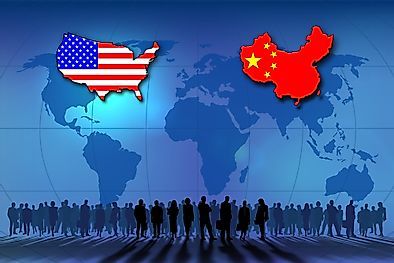
The Strategic Play: Can China Capitalize?
While these signs of shifting allegiances are concerning for Washington, it is still too early to determine the long-term consequences. Many countries in the Indo-Pacific still maintain positive relationships with the U.S. and view its security guarantees as crucial to their national interests.
However, the reality is that Beijing is seizing the moment. The sudden withdrawal of USAID programs in Africa has allowed China to step in and offer similar assistance, making it easier for China to bolster its influence in regions like Africa and the Pacific Islands. China’s rapid response to natural disasters, like the Myanmar earthquake, further demonstrated its ability to capitalize on the U.S.’s diplomatic and humanitarian lapses.
Conclusion: The U.S. Must Respond
In response to these challenges, Washington must recalibrate its approach to the Indo-Pacific. If China’s influence continues to grow unchecked, the region could shift away from its traditional U.S.-centric orientation. The U.S. needs to engage its partners by offering not only security guarantees but also economic benefits. If the Trump administration persists with its erratic policies, the Indo-Pacific may tilt more toward China, undermining Washington’s position in the region.
The current shifts in regional alliances are a wake-up call for the United States. How the Trump administration adapts to this emerging geopolitical reality will determine whether the U.S. can maintain its influence in the Indo-Pacific or whether China will become the region’s dominant power.
Author Profile

- Li Li, associate professor and master’s supervisor at Southwest University. B.A. in English for Education from Southwest Normal University, M.A. in English Translation and Interpretation from China Foreign Affairs University, Ph. D. in Japanese Cultural History from Nankai University (all above are in China). Also has studied at Osaka Sangyo University and Kokugakuin University in Japan and been a Fulbright visiting scholar to Western Kentucky University in US. A multidisciplinary and versatile instructor with a trilingual mastery of Chinese, English and Japanese, known for Combining foreign language teaching with history and humanity cultivation. Academic researches center on Japanese history, international relations and Western culture studies. Work experiences include teaching at Capital Normal University, Chongqing Normal University, and Southwest University. Has published multiple academic papers, translated works, authored or co-edited several textbooks and monographs; provided language services for several high-level and high-profile international events.
Latest entries
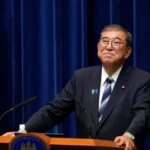 PoliticsSeptember 7, 2025Japan’s Prime Minister Shigeru Ishiba Resigns Amid Election Defeats:What’s Next for Japan?
PoliticsSeptember 7, 2025Japan’s Prime Minister Shigeru Ishiba Resigns Amid Election Defeats:What’s Next for Japan?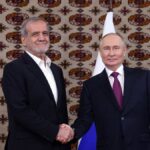 GeopoliticsAugust 22, 2025The Limits of Russia’s Friendship: Moscow’s Calculated Response to the Iran Crisis
GeopoliticsAugust 22, 2025The Limits of Russia’s Friendship: Moscow’s Calculated Response to the Iran Crisis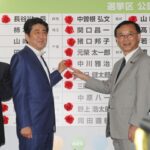 Japanese PoliticsJuly 22, 2025Japan’s Upper House Election: Prolonged Instability and Its Impact on Domestic and Foreign Policy
Japanese PoliticsJuly 22, 2025Japan’s Upper House Election: Prolonged Instability and Its Impact on Domestic and Foreign Policy Middle East AffairsJuly 20, 2025Will Israel Ever Face Consequences for Bombing Its Neighbours?
Middle East AffairsJuly 20, 2025Will Israel Ever Face Consequences for Bombing Its Neighbours?


2 comments
Your writing captures such a crucial topic with clarity and depth. I appreciate the thoughtful analysis and the fresh perspective you bring to the discussion. Looking forward to seeing more of your insights!
Your enticle helped me a lot, is there any more related content? Thanks!